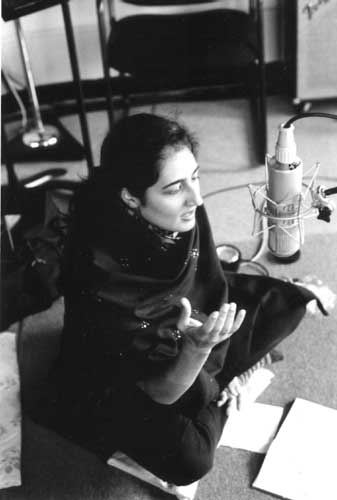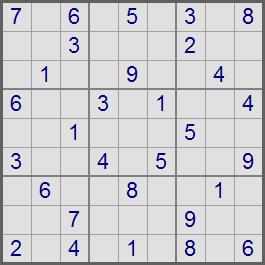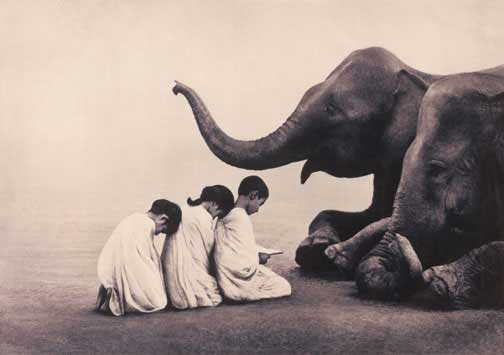Well, I did my best with my two minutes of
radio fame. [Update: a downloadable MP3 is
here]
In response to the question "What is the message from India," I said that
there is no one message. India is way too complicated for that to even be a very productive question. It depends where you look, how you look, and who you talk to. I wish I would have had time to say a bit more:
For instance, for India’s poor, globalization has been of little consequence. The poorest segments of Indian society are still by and large without access to reliable electricity, clean water, education, or medical care. India’s per capita income is still $2,600 in purchasing power,
according to the UNDP. The country is ranked 127th in the world in the UNDP’s development index. Adult literacy is at 60% according to the Indian census. And while there has been some progress, there’s no question that the sheer numbers of people who are living in conditions of poverty should be of grave concern to people all over the world.
Dilip D’Souza has reported on this in many of his stories in the Indian media. He’s been especially compelling on the plight of the people who live in the shantytowns of Bombay/Mumbai -– where something like half of the city live in illegal tenements that are routinely torn down by city authorities (only to be immediately rebuilt). A staggering number of people spend their entire lives in abysmal circumstances. (A sense of the surreal life of the chawls is also quite prevalent in
Maximum City.)
We can perhaps blame some of these failures on western policies regarding India, but I don’t think it’s really sufficient. A much bigger factor has been the government’s lack of responsiveness, and its lack of vision about how to address the problems that are internal to India.
* * * * * *
But that's not the only story, and I think it's a mistake to only dwell on the negative. (The tenor of last night's conversation drifted in that direction.) I tried to offer some slightly more upbeat comments... here's what I should have said:
There is a new confidence, a new passion for entrepreneurialism in many different fields. Obviously the best known of these is the high tech industry -– computers, software, the internet. But you also see it happening in fields such as medicine, biotechnology, even space exploration. And of course you see it in literature, with a new crop of writers that is doing pretty amazing work writing in India itself.
The old idea that a well-educated person with talent and ambition had to leave India in order to get anywhere is fading. There is a
trend where a small number of people who emigrated some years ago are actually returning to India to start businesses, or manage the Indian offices for major multinational corporations. The numbers of this reverse drain ("brain gain") are relatively small, but I suspect it will pick up, and have some long-term benefits for India’s talent pool.
There’s been some talk that because much of the work created in recent years via globalization is "back-office" work –- call-centers, for example -– the benefits for India will end up being quite limited. The sociologiest Vijay Prashad has even used the expression
"high tech coolies" to suggest that while people who work at various kinds of outsourcing jobs are very well paid relative to the national average, they are essentially doing menial work that Americans don’t really want to do. There is a danger of that happening, but it seems to me that the picture is much more complicated than that, and I think Prashad has been mistaken in using that term. The call center phenomenon is only part of it. More and more of the outsourcing work is high quality employment. Companies like Microsoft and Intel increasingly depend on Indian programmers not just to write the basic code, but to develop large components of their fundamental products.
It is increasingly possible for middle class people in India to have very fulfilling careers in India itself, doing work that is at once challenging and meaningful, and where they themselves have a sense of command over their own destinies. It’s a major change from the era when office jobs were men sat, drank chai, and took bribes -- where not much of substance got done, and where ambition and innovation were stifled at every turn. Some of that culture is still there (one continues to hear complaints about India's Ocean of Red Tape), but a growing number of Indians in the current generation are fed up with it.
But again, it's a mistake to get carried away with optimism. The
other set of problems -- those linked to poverty -- still remain. Since the government is unlikely to imagine any new way of dealing with entrenched problems, I have some hope that the younger generation will start to think beyond themselves, and use the new ethos that is emerging to improve the greater common good in ways that will benefit India’s large populations of both urban and rural poor. I would love to see an entrepeneurial attitude to fighting illiteracy and unemployment.
In short, though some people are worried about Western Imperialism, what is going to be more important in the long run is what Indians can do for themselves.
* * * * * *
Speaking of Empire, I’m not convinced that it’s appropriate to talk about American imperialism or "American empire" in the context of India. There are certain disturbing parallels between the recent Iraq war and the British Raj -– Ghosh has written about them, in the New Yorker (an article that is available at his
website) but for me it’s not really a strong point for historical comparison -- it's more like a historical
metaphor.
And I was a little disappointed that Amitav Ghosh seems to be essentially where he was at the start of the recent Iraq invasion. Here is how he opened the essay from the March 2003
New Yorker:
During the past few months, much has been said and written on the subject of a "new American empire." This term, however, is a misnomer. If the Iraq war is to be seen as a kind of imperial venture, then the project is neither new nor purely American. What President Bush likes to call the "coalition of the willing" is dominated, after all, by America, Britain, and Australia - three English-speaking countries whose allegiances are rooted not just in a shared culture and common institutions but also in a shared history of territorial expansion. Seen in this light, the alignment is only the newest phase in the evolution of the most potent political force of the last two centuries: the Anglophone empire.
I am an Indian, and my history has been shaped as much by the institutions of this empire as by a long tradition of struggle against them. Now I live in New York; for me, the September 11th attacks and their aftermath were filled with disquieting historical resonances. I was vividly reminded, for example, of the Indian uprising of 1857, an event known to the British as the Great Indian Mutiny. That year, in Kanpur, a busy trading junction beside the Ganges, several hundred defenseless British civilians, including women and children, were cut down in an orgy of blood lust by Indians loyal to a local potentate, Nana Sahib. Many of the Indians involved in the rebellion were erstwhile soldiers of the empire who had been seized by nihilistic ideas. The rebels' methods were so extreme that Indian moderates were torn between sympathy, revulsion, and fear. Many Indians chose to distance themselves from the uprising. Others went so far as to join hands with the British in the two violent years that followed the rebellion. A similar process is clearly under way in today's Middle East, where Islamist fundamentalism has inflamed some Arabs while alienating others.
The phrase "shock and awe," used by the United States military to describe the initial aerial attack on Baghdad, provided another reminder of the 1857 uprising in India. In the aftermath of the mutiny, the British mounted a campaign to create terror and awe among rebel forces throughout the Indian subcontinent. The road from Kanpur to Allahabad was lined with the corpses of Indian soldiers who had been hanged; there were public displays of rebels being shot from cannons. British soldiers sacked cities across the north of India. The instruments of state were deployed in such a way as to reward allies and punish areas and populations that had supported the rebels. The effects of these policies were felt for generations and can, arguably, still be observed in the disparities that divide, say, the relatively affluent region of Punjab and the impoverished state of Bihar.
The right and wrong of the British actions are not at issue here. Nor do I want to overstate the analogy to the present circumstances; the "coalition of the willing" is clearly not going to use nineteenth-century methods in Iraq. I want, rather, to pose a question that is not articulated often enough: Do such acts of power work? Many believe that displays of military might are always erased or offset by countervailing forces of resistance. But those who are accustomed to the exercise of power know otherwise. They know that power can be used to redirect the forces of resistance.
It's a very nicely written opening, but is it still a relevant metaphor for the current situation? At best, this is a caution for Americans on the verge of war. In the conversation on the radio last night, Ghosh followed up by alluding to Gandhi, and reminding us that freedom can't be instilled at gunpoint. All of which was said, correctly, by many on the left in the build-up to war. But I don't think it's a useful sentiment two years later; some things have changed. Like the Democratic presidential candidates in the last election, we need to apply ourselves to the new reality; we cannot effectively 'run' against a war that has already happened. I believe that in some fundamental sense we have to find a way to accept the American occupation, though we can continue to draw attention to the potential for further exploitation of the Iraqi people.
How to read what is happening in Iraq today is a vexed question. It does seem that the new government is slowly establishing itself, and there are some hints that the insurgents are slowly being rounded up. Do we really believe that a stable Iraqi government can't survive the inevitable withdrawal of American forces? And would we still call then this an exercise in "Imperialism"? Since I do believe that US troops will withdraw in the next 2-3 years, I don't think the term is applicable in the territorial sense. The US will, admittedly, begin to demand economic privileges from the new Iraqi government with regards to access to oil, but that is an economic relationship. It's an exploitative relationship, and not a good thing for ordinary Iraqis (or, for that matter, for ordinary Americans). But we should employ a different word to describe it.
Getting back to India. Christopher Lydon asked me why there hasn't been more outrage about America's Iraq adventure in the postcolonial world.
What I said was, some Indians did in fact protest this war -- Ghosh's piece in the
New Yorker certainly had an impact, for instance. But these days most of India's intellectuals are, correctly, more concerned with the problems that preoccupy India itself than they are with George Bush's latest follies. It's a classic American fallacy to think that everyone in the world is worried just about America!
What I should have said was something along these lines: there is in fact a great deal of diversity of thought in India about this war, and the best attitude for India to take in response. Some might see it as a naked display of American super-dominance on the geopolitical stage, built on lies, and a deeply corrupt enterprise from start to finish. (Oh wait, that's how I see it...) But others in India's new generation would take a more pragmatic stance: We weren't happy that you started this war, but now that you have, is there any way I can make money out of it?




